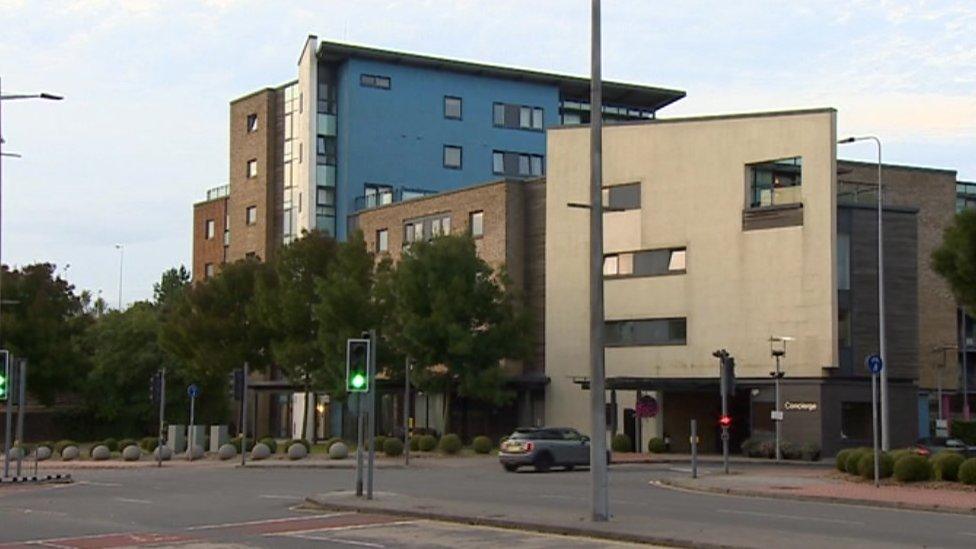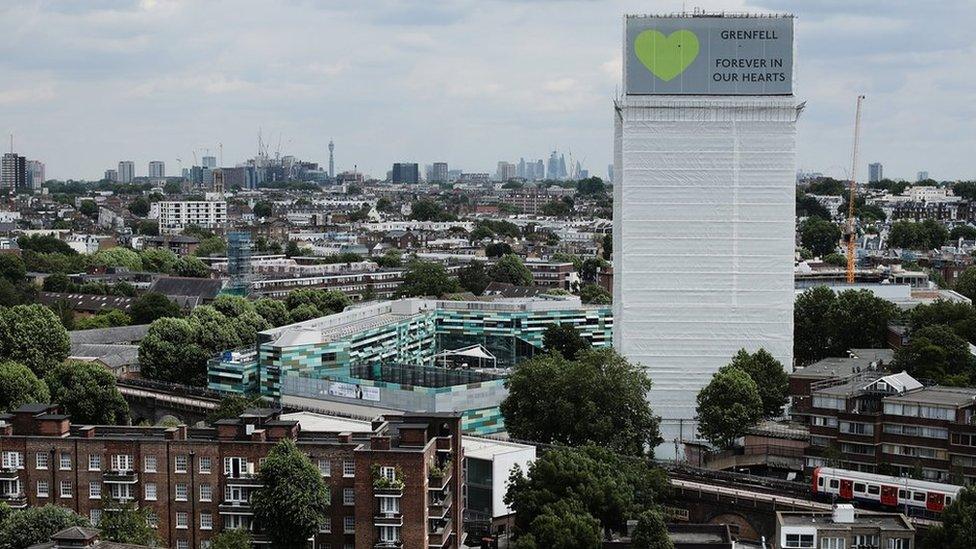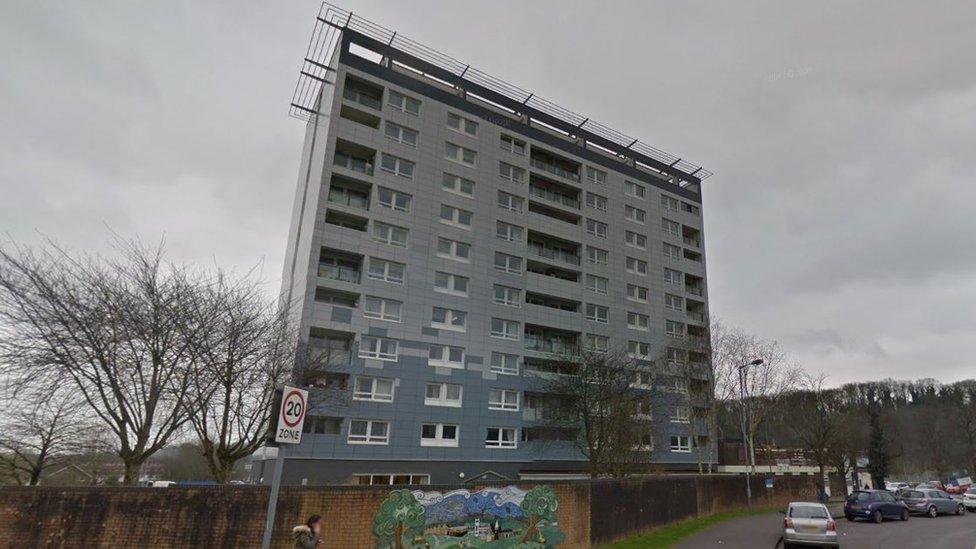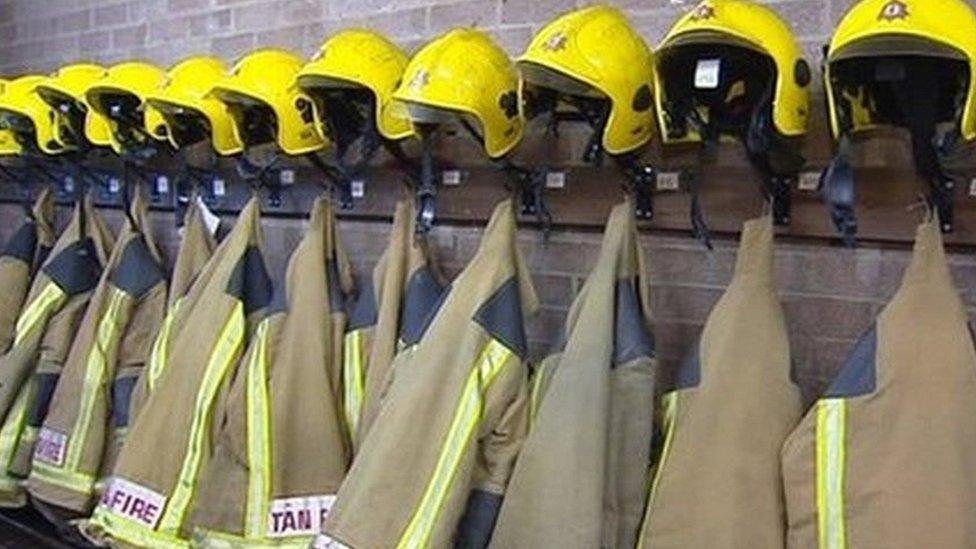'Urgent new law needed to reduce high-rise fire risk in Wales'
- Published

Cladding at Prospect Place in Cardiff is to be replaced after it failed fire safety tests
Urgent action is needed by Welsh ministers to reduce fire risk in private high-rise flats, AMs have said.
An assembly investigation, held in the wake of the Grenfell Tower fire, found that people who carry out fire risk assessments need little or no training.
Meanwhile AMs heard that building plans often do not reflect what is finally built, in part because the inspection regime lacks resources.
The Welsh Government said the safety of residents is "our number one priority".
AMs heard evidence of a high-rise block where there was a concern of a "large risk to life", but AMs were assured the risk had been mitigated.
The report called for a new law to put minimum requirements on fire risk assessors, and bring front doors of flats within the responsibility of the fire and rescue services.
It said the current law does not place "any any requirements on the competence or qualifications of a person undertaking a fire risk assessment".
"It has been more than a year since the terrible tragedy of Grenfell and the repercussions are still being felt across the country," said John Griffiths, chairman of the equality, local government and communities committee, which examine fire-safety issues facing privately owned high-rise blocks.
"People need to feel safe in their homes and that the building and the fittings, particularly in high rise blocks, are of the highest standard."
Most witnesses told the inquiry that there can be a difference "between the building design and what is eventually constructed".

The repercussions of the Grenfell Tower fire are still being felt across the UK, an AM said
The committee said the inspection regime is not resourced and has insufficient powers to closely monitor what is happening on every build.
Mid and West Fire and Rescue Service said that can be because of the competence of tradespeople on building sites, as well as a lack of supervision.
AMs called for more regular on-site inspections from councils, but took evidence that a lack of resources reduces the amount of work that can be done.
A review into fire safety held by Dame Judith Hackitt after the Grenfell fire said it should not be possible for firms to choose their own regulator - currently developers can pick from the local council or an approved inspector.
The Welsh Government, the AMs said, should change the law so only councils can act as the regulator for high rise buildings seven storeys or higher.
The report added that leaseholders and residents have faced over a year of worry and uncertainty, and should not be liable for the costs of remedial work.
The chief fire and rescue advisor and inspector for Wales Andy Fry said people were not living in unsafe blocks, because interim measures had been put in place where fire safety concerns had arisen.
A Welsh Government spokesman said it had set up an expert group to recommend how to redesign its approach to building safety, and it will be asked to look at the committee's recommendations.
"Across housing, the safety of Welsh tenants and residents is our number one priority," he said.
"We continue to work closely with our partners including landlords, owners and managing agents, the Welsh Fire and Rescue Services and local authorities to ensure specific issues are addressed."
A number of privately-owned buildings at a development in Cardiff Bay were earlier found to have cladding that failed fire safety tests, although this is now being replaced.
- Published22 May 2018

- Published24 October 2018

- Published27 September 2018
